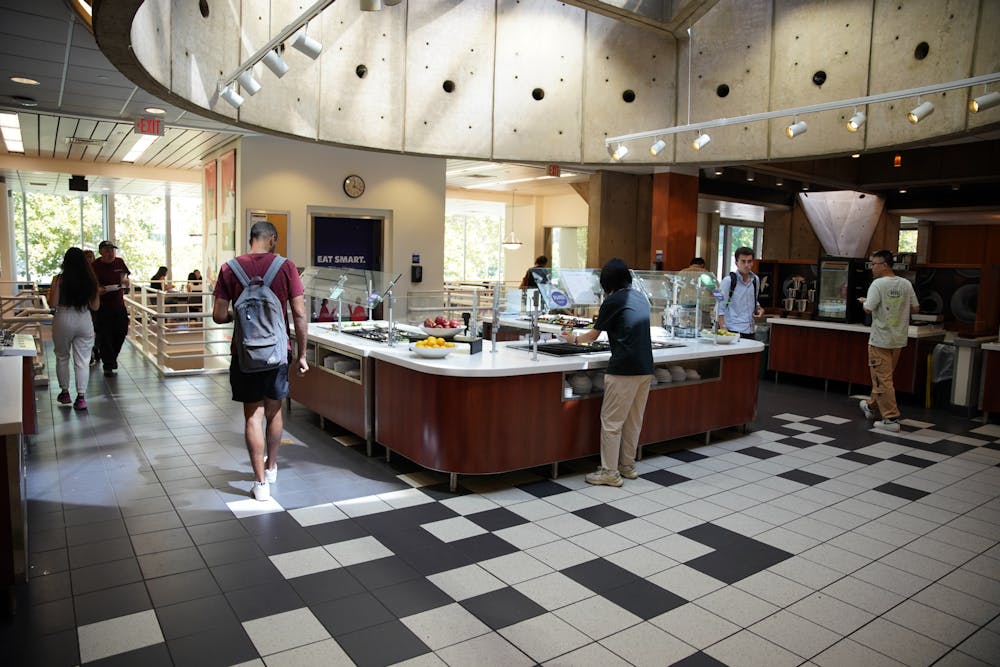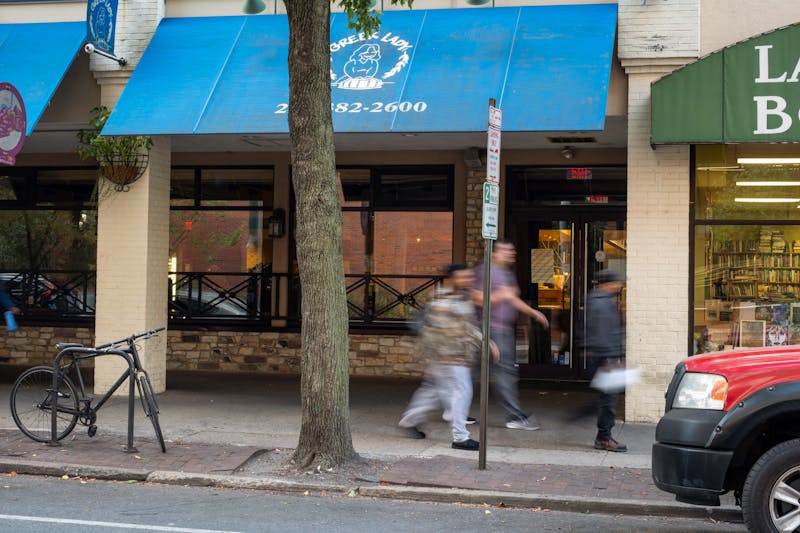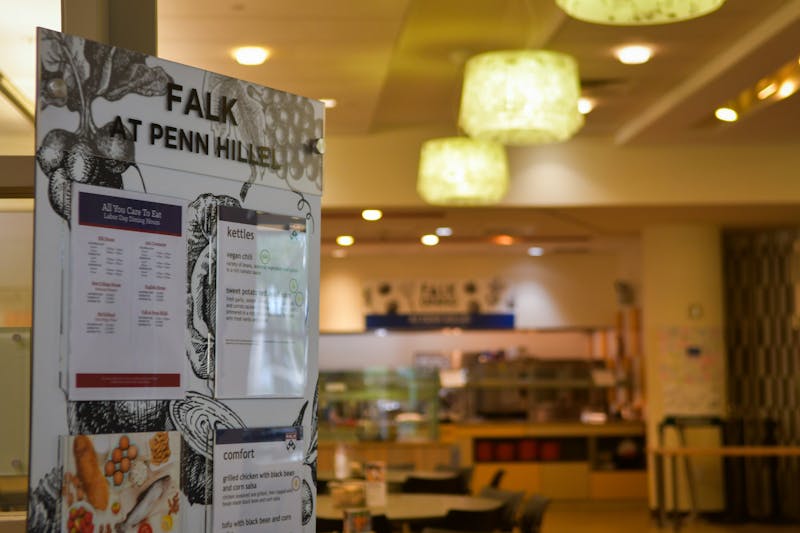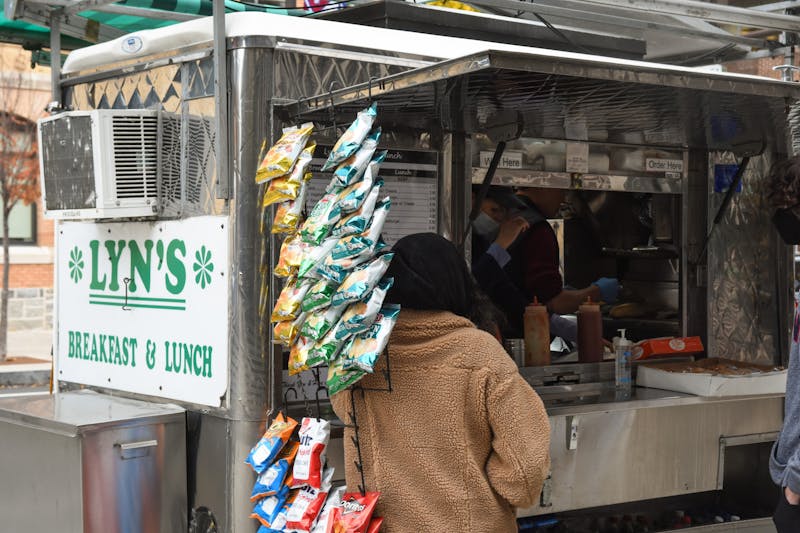
When I first arrived at the University, I found myself defending the dining halls with the earnest optimism of a fresh–faced first year. "The food isn't that bad," I'd insist to my skeptical friends, highlighting some of the hidden gems on campus that I still love to this day: Penn Hillel chicken wraps (with spicy mayo), Houston Market's bento boxes, and Gourmet Grocer’s mac and cheese. While these meals obviously couldn’t compete with my mum’s spicy and hearty jollof rice, I was satisfied with the meals on offer.
That was before I experienced two food violations on the same bleary October day: hair all over my sugar cookie at Hill, and mold on my sandwich at Gourmet Grocer.
Like many students before me, I dutifully snapped the obligatory photo and started to file the standard complaints. But as I sat there, staring at my contaminated dinner, a deeper question emerged: Why do so many of us now accept this as normal?
The first–year Penn experience has become defined by the questionable quality of our dining halls. Stories of finding maggots, glass shards, hair, and insects in meals circulating on Sidechat and through word of mouth have evolved into a peculiar form of student bonding. These shared experiences of dining hall disasters have become such reliable conversation starters that they're almost a rite of passage—a strange reality for an institution of Penn's caliber.
What makes this situation particularly concerning is the mandatory meal plan cost of $6,534 per year for first years and sophomores—a figure that is expected to increase in the coming years. For this price, one would expect, at minimum, consistently sanitary food. Instead, we've normalized the abnormal, accepting substandard conditions that would shutter any regular restaurant in Philadelphia.
In fact, it has. Recently, Greek Lady, a popular off-campus restaurant, was ordered to shut down after accumulating 19 health code violations. Similarly, Ochatto had to temporarily close after nine violations. Yet Penn's dining halls, which racked up 100 violations across their facilities, including 38 at Hill College House, continue operating with seemingly minimal consequences.
One has to ask oneself: is there regulatory leniency when it comes to Penn Dining? Unlike small businesses such as Greek Lady or Ochatto, which rely on their reputations for survival, Penn's prestigious status isn't primarily tied to its dining services. The truth is that Penn's academic excellence and global reputation ensure a steady stream of students regardless of dining hall quality.
However, the implications of poor food quality extend beyond mere inconvenience, creating hidden costs that disproportionately affect students from lower socioeconomic backgrounds. Many of my friends have resorted to purchasing mini–fridges and stocking them with alternative food options—an expensive solution that creates divisions within the student body. Students who do not have the means to buy and stock a fridge for a few months of use, plus additional costs for summer storage if they don't live nearby, are left with fewer options for having more variety in their food choices. Meanwhile, wealthier students are able to frequently take advantage of off-campus restaurants, creating greater disparities in dining experiences.
This situation points to a broader trend of institutional inaction. While Penn maintains its position as a top university, basic quality-of-life issues like food safety seem to take a back seat. Perhaps there is a sentiment that students will continue to accept less-than-ideal dining conditions because, well, it's Penn. This mindset undermines the basic standards any university should maintain.
It's not that Penn lacks the ability to ensure consistent meal quality across all dining halls; there's certainly the potential to standardize offerings. Who wouldn’t want 10 mini Quaker Kitchens? The question is whether the institution feels enough urgency to make necessary changes. As students like myself continue to choose Penn regardless of dining conditions, and with regulatory oversight being relatively lenient, the incentive for improvement remains low. Faculty may feel like money and effort could instead go to further improve things Penn already excels at, like building new state-of-the-art facilities—but is that really what students need most right now?
The University's position allows it to operate under different standards than the surrounding community. While local businesses in Philadelphia have faced immediate consequences for health violations, Penn's dining halls continue serving thousands of students daily, regardless of their track record. If this is left unchecked, Penn Dining will continue to both jeopardize student health and reinforce existing socioeconomic disparities within the student body. We deserve consistently nutritious food—not a system that overlooks these basic standards.
So, in the meantime, I’ll keep enjoying my Hillel chicken wraps, and the other great meals on offer here, but please, Penn, let’s make sure all campus food can match that level of quality.
ELO ESALOMI is an Engineering first year from London, United Kingdom. Her email is eloe@seas.upenn.edu.
The Daily Pennsylvanian is an independent, student-run newspaper. Please consider making a donation to support the coverage that shapes the University. Your generosity ensures a future of strong journalism at Penn.
Donate











